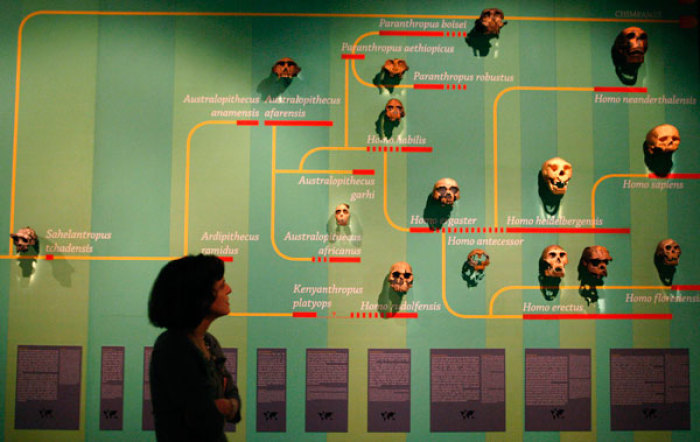With higher levels of education and declining religiosity, most Americans now accept evolution: study

With increased exposure to college-level education and declining levels of religious belief, a majority of Americans now believe in evolution after nearly two decades of being nearly evenly split on the issue, according to a new study.
"The theory of evolution is based on the idea that all species are related and gradually change over time. Evolution relies on genetic variation in a population which affects the physical characteristics of an organism. Some of these characteristics might give the individual an advantage over other individuals which they can then pass on to their offspring," Your Genome explains.
The new study, "Public acceptance of evolution in the United States, 1985–2020," authored by University of Michigan researchers Jon D. Miller, Mark S. Ackerman and Eugenie C. Scott of the National Center for Science Education, was published this month in the journal Public Understanding of Science.
Analyzing data from a series of national surveys, including from the National Science Board and a series focused on adult civic literacy funded by NASA published over the last 35 years, the researchers found that "increasing enrollment in baccalaureate-level programs, exposure to college-level science courses, a declining level of religious fundamentalism, and a rising level of civic scientific literacy are responsible for the increased level of public acceptance."
“From 1985 to 2010, there was a statistical dead heat between acceptance and rejection of evolution,” Miller, the lead researcher from the Institute for Social Research at the University of Michigan, said in a press release. “But acceptance then surged, becoming the majority position in 2016.”
The national samples of U.S. adults were asked to agree or disagree with the statement: “Human beings, as we know them today, developed from earlier species of animals.”
Data show that Americans were evenly divided on the question of evolution from 1985 to 2007. Over the last decade, until 2019, however, the percentage of American adults who agreed with the statement increased from 40% to 54%.
“Almost twice as many Americans held a college degree in 2018 as in 1988,” Ackerman, a researcher at Michigan Engineering, the U-M School of Information and Michigan Medicine explained. “It’s hard to earn a college degree without acquiring at least a little respect for the success of science.”
Religious fundamentalism was identified in the study as the strongest factor leading Americans to reject evolution. Even though the population of Americans who identify as fundamentalists declined in the last decade, some 30% of Americans remain committed to their beliefs.
According to the study even those who scored highest on the scale of religious fundamentalism shifted toward acceptance of evolution, rising from 8% in 1988 to 32% in 2019.
“Such beliefs are not only tenacious but also, increasingly, politicized,” Miller said in a release from the University of Michigan.
Some 34% of conservative Republicans accepted evolution compared to 83% of Democrats as of 2019, data show.
In 2019, a study from the Pew Research Center showed that only 65% of Americans now identify as Christian while those who identify as religiously unaffiliated — a group which includes atheists, agnostics and people who don’t identify with any religion — swelled to 26% of the population. The drop in the number of Americans identifying as Christian reflected a 12% decline when compared to the general population 10 years earlier. The decline was visible across multiple demographics but particularly among young adults.





























